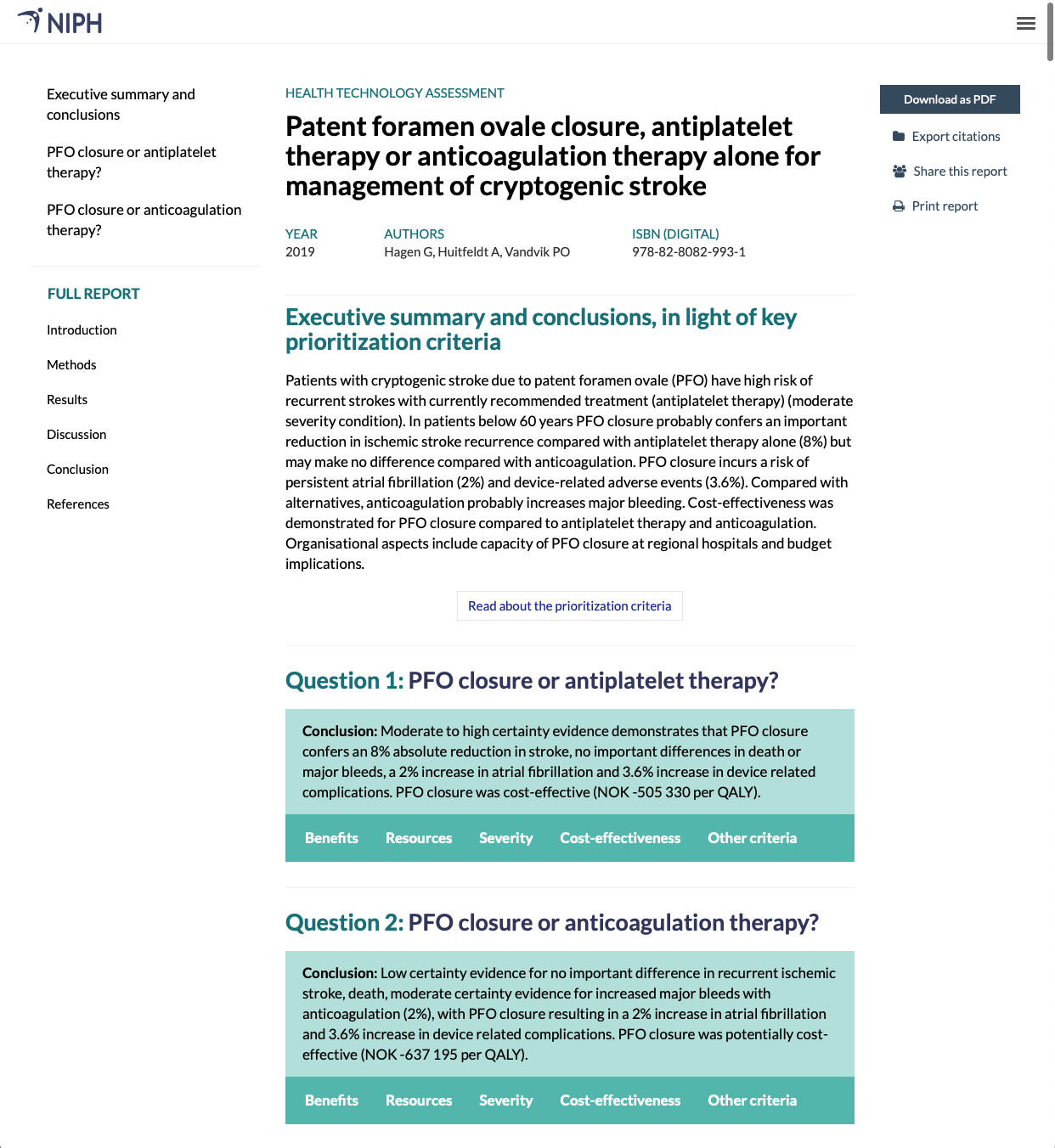

Policy-makers and payers face major challenges in making timely and well- informed decisions for new technologies. New and costly drugs – for example within precision oncology – and high-tech devices offer exciting opportunities to improve lives for patients but also put any health care budget under considerable pressure. HTA reports represent key decision support tools for policy-makers but are typically inaccessible, lengthy and difficult to understand. Optimised presentation formats are therefore needed, ideally making use of advances made for guidelines by MAGIC, also to allow better integration of HTA with guidelines in the evidence ecosystem.
This exciting project is currently in the research and innovation phase, demonstrating how MAGIC is ready to support not only clinicians and patients but also policy-makers around the world in making well-informed decisions for new technologies. This is now possible through our prototype of a Health Technology Assessment (HTA)-report in timely, transparent, understandable and easy-to-use presentation formats. MAGIC has co-created this HTA report format together with the Norwegian Institute of Health (NIPH). Our goal was to develop a prototype for a digital and multilayered HTA report presentation format, reusing and integrating content from systematic reviews and guidelines.

Screenshot shows HTA report informing policy-makers about the introduction of a new device (PFO-closure for patients with cryptogenic stroke) in Norway spring 2019.
o demonstrate real life feasibility, we coordinated the prototype development with an ongoing national HTA on a stroke device performed by the NIPH and informed by a systematic review from BMJ Rapid Recommendations. In March 2019, a first version of the prototype was presented to decision-makers representing the national HTA system in Norway. Policy-makers were able to make a real-life decision after 10 minutes of exploring, discussing and interacting with the online HTA report.
We conclude that authoring and publication of HTA reports in such formats could greatly facilitate co-production, dissemination and updating of systematic reviews, HTA and guidelines, ultimately sharing evidence and work in the evidence ecosystem. Indeed, our project also resulted in increased efficiency in the HTA process, saving precious time and resources and demonstrating how we can include HTA organisations and policy-makers in our emerging evidence ecosystem.
If you would like to know more (contact Stijn van de Velde).